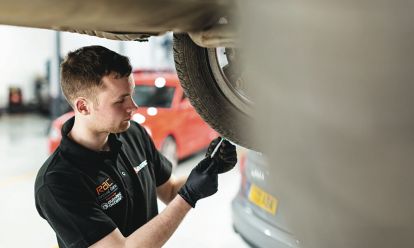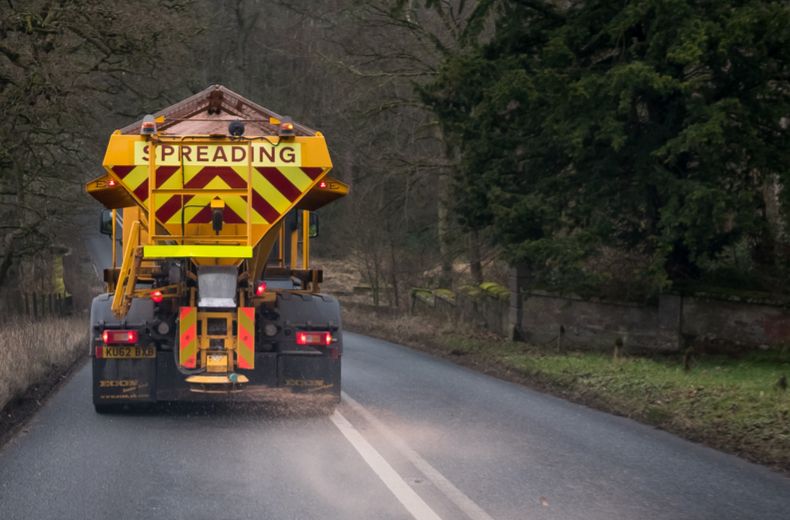There’ll be plenty of gritter lorries out on the roads this winter – but what should you do if you're the unlucky motorist that ends up following one?
Our simple winter driving guide is here to help, so let's get into the nitty gritty.
Give yourself space behind the gritter
First of all, if you're behind a gritter, give yourself some space.
The salt crystals are sprayed from the rear of the wagon at quite a force – being up close to the lorry’s tail could produce plenty of unwanted and expensive to repair stone chips on your bonnet.
Be aware of reduced traction on icy roads
Although local authorities grit roads to help melt ice and improve grip levels, be aware that driving behind a gritter truck with a high concentration of road salt being deployed could also reduce adhesion levels.
The grit acts like ball bearings, meaning less of your tyres’ rubber is in contact with the road, reducing steering response and braking performance.
Leave extra room at junctions
Be mindful that the truck’s salt sprayer is driven off its engine.
That means as it pulls away from a junction the mass of salt that has collected in the dispenser will be thrown all over your car as it moves off.
It’s even more important to leave extra room at a junction than in normal driving if you value your car’s paintwork.
Watch out for their warning lights
There is a caveat, however. Gritters only generally distribute salt when their orange warning lights and ‘spreading’ signs are illuminated.
If they aren’t, you’re generally safe to follow them at a normal distance. Be wary that they could begin scattering grit at any time though.

Complete peace of mind for less
• Cheaper than AA Price Promise or your money back^
• We get to most breakdowns in 60 mins or less
• Our patrols fix 4/5 breakdowns on the spot

Don't swerve or aggressively turn
If a gritter wagon approaches you coming the other way, don’t aggresively swerve or brake/accelerate.
Suddenly steering away from the truck’s path only increases your risk of crashing.
Be patient - leave more overtaking room
Finally, if an opportunity arises to overtake a gritter, don’t wait around.
Make sure you pass quickly and safely, remaining within the speed limits and traffic laws at all times.
Your car will likely get a splattering from the spreader as you move past, but it won’t be as bad as prolonged exposure to the constant stream of salt.
- What to pack in your emergency breakdown kit
- Top car tips in the extreme cold
- Advice for safe driving on ice
To summarise our road gritter tips:
- Give yourself some space to protect your paintwork
- Be aware of reduced traction on the fresh particles
- Leave room at junctions for the sudden grit spray
- Look out for their orange warning lights
- Don't swerve if one is approaching from the opposite direction
- Be patient - don't overtake unless it's safe
- Leave more overtaking room if you really can't wait behind
Unfortunately, these tips are only reactive measures.
If you’re stuck behind a gritter, the only thing to do is be patient if you can’t pass. That way you won’t damage your car or put you and other road users at risk.
Service, repair or MOT?
You can trust the RAC with our local approved garages and NEW mobile mechanics.












